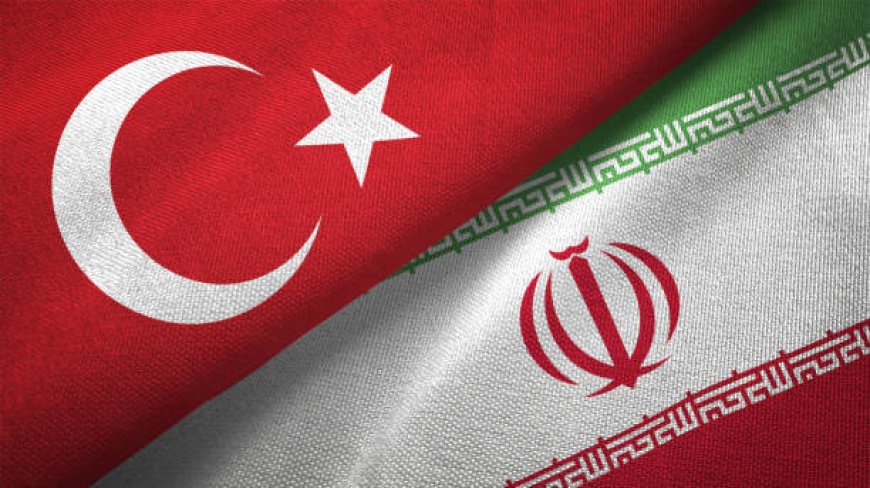Iran–Turkey Relations in a Time of Regional Crisis: A Strategic Alliance Amid Western Threats
Security cooperation between Iran and Turkey holds immense promise in mitigating the risks posed by third-party actors. Iran remains justifiably concerned about the presence of US military bases on Turkish soil, particularly in light of potential aggressions targeting its western frontiers. A closer Iran–Turkey alignment can serve as a deterrent, reducing the threat of military action launched via NATO infrastructures.

Iran–Turkey Relations in a Time of Regional Crisis: A Strategic Alliance Amid Western Threats
In recent weeks, escalating military threats from the United States and Israel have catalyzed a renewed diplomatic urgency within Iran. Recognizing the necessity of building resilient regional alliances, Iranian policymakers have sought to deepen ties with influential neighboring states. Chief among them is Turkey—a country with a complex yet enduring history of engagement with Iran. Amidst this geopolitical turbulence, both nations have maintained regular communication at the highest levels, particularly between their foreign ministries. Despite previous fluctuations in bilateral relations, Iran and Turkey remain united by enduring mutual interests, especially in the realms of security, politics, and economics. This article explores the growing potential of Iran–Turkey cooperation as a stabilizing force in an increasingly volatile West Asian landscape.
Shared Security Imperatives: Tehran and Ankara Confront External Threats
Security cooperation between Iran and Turkey holds immense promise in mitigating the risks posed by third-party actors. Iran remains justifiably concerned about the presence of US military bases on Turkish soil, particularly in light of potential aggressions targeting its western frontiers. A closer Iran–Turkey alignment can serve as a deterrent, reducing the threat of military action launched via NATO infrastructures. Simultaneously, the Zionist regime’s covert operations and destabilizing influence across the region represent shared concerns for both Tehran and Ankara. Intelligence collaboration between the two countries could significantly disrupt such external plots. Furthermore, Iran's extensive counterinsurgency experience regarding Kurdish movements offers valuable insights for Turkey, especially in managing sensitive ethnic issues along its borders.
Economic Synergies: Turning Geopolitics into Mutual Prosperity
Beyond security, Iran and Turkey are well-positioned to unlock substantial economic benefits through closer collaboration. Turkey’s struggle with persistent inflation in recent years presents an opportunity for Iran to offer strategic economic partnerships. Both countries command critical positions in transcontinental corridors—positions that, if jointly leveraged, could serve as keystones for Eurasian trade. The development of multimodal transport routes, energy exchanges, and joint infrastructure projects could generate immense added value. Iran’s vast reserves and Turkey’s industrial capacity are naturally complementary, and the creation of regional economic corridors could redefine trade dynamics in West Asia, fostering a new model of economic sovereignty free from Western overreach.
Resisting Western Militarization: Toward a Regional Security Architecture
Western military presence in West Asia, particularly by the United States, continues to threaten regional autonomy and peace. Analysts increasingly argue that a strategic axis between Tehran and Ankara could form the backbone of a native security framework—one shaped by the aspirations of regional nations rather than by the designs of global powers. Iran and Turkey each possess long-standing strategic visions: Iran in the Persian Gulf and Levant, and Turkey in the Caucasus and Central Asia. Yet both find their ambitions obstructed by Western militarization. Only by fostering indigenous coalitions can these regional powers dismantle the artificial boundaries imposed by Cold War-era doctrines and Western strategic manipulation.
From Fragmentation to Sovereignty: Building a Multipolar Middle East
As the global order transitions toward multipolarity, the Middle East stands at a pivotal crossroads. With the gradual diplomatic isolation of Israel and the weakening legitimacy of external military interventions, new opportunities arise for regional powers to assert sovereignty. Iran, Turkey, and potentially Saudi Arabia can form a tripartite axis capable of challenging foreign domination and ethnic fragmentation strategies long employed by Western actors. The suppression of indigenous resistance movements, the aggravation of sectarian tensions, and the unilateral exploitation of regional resources may soon face robust regional countermeasures. A coordinated Iran–Turkey approach could address lingering crises in Iraq, Syria, and even the Caucasus, ushering in a new era of regional problem-solving rooted in shared heritage and strategic realism.
Conclusion: A Moment of Regional Reckoning
The path forward for West Asia requires unity, foresight, and strategic independence. By deepening bilateral cooperation, Iran and Turkey can not only resist the incursions of foreign powers but also lay the groundwork for a just and self-determined regional order. In the evolving architecture of global politics, their partnership may emerge as a cornerstone of peace, stability, and sovereignty across the Islamic world and beyond.
By: A. Yeganeh













































